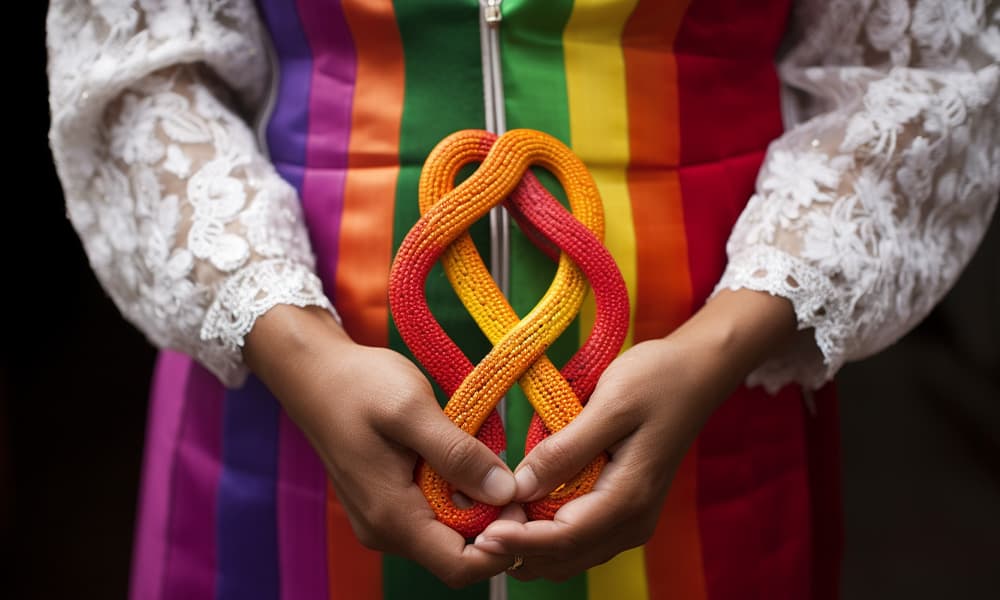One in five girls or teenagers gets married or lives in a de facto union before reaching the age of 18 in Latin America, the only region where child marriages have not decreased, experts and activists warned the OAS (Organization of American States) this Wednesday.
“They are not ready to apply for a driver’s license, they are not ready to vote, and the law prohibits it,” but it allows them to “get married,” said Alejandra Mora, executive secretary of the Inter-American Commission of Women.
“They are not ready to manage their own lives” but end up in “early pregnancies managing new lives,” she denounced during a session of the Permanent Council (executive body) of the Organization of American States (OAS).
And she added: “They are not ready for marriages with partners of their own age but end up in inappropriate relationships where their partners are twice their age.”
The figures are chilling.
According to her, “approximately one in five girls, and in some countries, it’s one in four, are in a de facto or marital union before the age of 18” in this region, which “is the only one in the world where in the last five years child marriages and unions have not decreased.”
The diagnosis is “dramatic,” agreed Luz Patricia Mejía, technical secretary of the Follow-up Mechanism for the Belém do Pará Convention (MESECVI).
Eighteen countries in the region prohibit marriage before the age of 18, but 22 allow exceptions.
Functional System
According to a study by the MESECVI committee of experts, the countries that set the minimum legal age for marriage at 18, without exceptions, are Antigua and Barbuda, Chile, Costa Rica, Ecuador, El Salvador, Guatemala, Honduras, Mexico, Panama, Dominican Republic, and Trinidad and Tobago.
Others have decreed 16 years with exceptions: Barbados, Belize, Bolivia, Brazil, Dominica, Grenada, Jamaica, Nicaragua, Paraguay, Peru, Saint Lucia, and Uruguay.
And in others, it is not even necessary to have turned 16, except in some cases, such as in Argentina, Bahamas, Colombia, Cuba, Guyana, Haiti, Saint Kitts and Nevis, Saint Vincent and the Grenadines, Suriname, and Venezuela.
“In other words, we socially allow this to happen,” says Mejía, warning that there is even “a higher prevalence of informal unions” in girls as young as 8 or 9.
For Alejandra Mora, the system authorizes it “because it’s functional, because these girls and teenagers end up being providers of domestic services, caregiving, work, and even sexual labor.”
The number of Child, Early, and Forced Marriages and Unions (CEFM) in the region “has remained for the last 25 years,” stated Rocío Muñoz, advisor to the UN Population Fund in a video message.
If no action is taken “by 2030 we will have the second-highest percentage,” she warned, coinciding with the launch of the campaign #before18NO.
Not turning a blind eye
There are factors that encourage this practice, such as “gender inequality and discrimination, lack of opportunities, and the existence of insecure and violent environments,” listed Alma Burciaga-González, head of the Latin America and Caribbean section of the NGO Girls Not Brides.
If these causes are not addressed, “we can have a myriad of laws” but the problem will not be resolved, she insisted on International Girl Child Day.
In Latin American countries where laws have been adopted prohibiting marriage before the age of 18, some judges still register them, free unions have increased, or minors have been criminalized, who are afraid to go to medical centers for fear of being sanctioned.
“Laws alone do not solve nor will they solve practices rooted in our society unless they are part of a much broader effort,” warns Burciaga-González.
Sofía Quiroga, coordinator of the Young Latinas movement, called on the OAS to “not turn a blind eye” to avoid “continuing to be in debt” to girls and teenagers.






